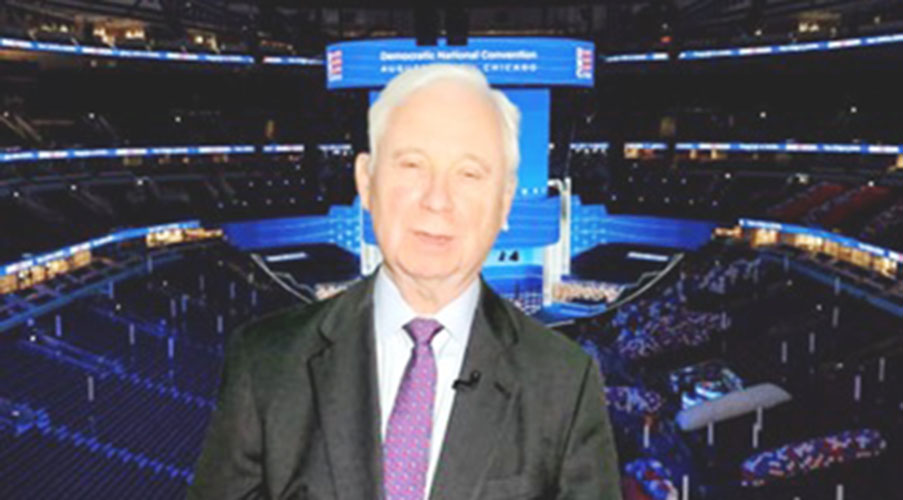Political commentator James Hagstrom delivered an insightful presentation on the American democratic process and the crucial role of media and civil society in promoting effective governance in a virtual dialogue hosted by the US Embassy yesterday.
The event, which took place via Zoom from 2 pm to 3 pm, was a timely exploration of the dynamics at play in the lead-up to the 2024 United States elections. Hagstrom’s discussion focused on the Democratic National Convention and its significance in the broader context of American politics, highlighting the interplay between political conventions, campaign finance, and public engagement.
Hagstrom began by addressing the historical evolution of political conventions in the US, noting their transition from closed-door gatherings of party elites to more inclusive events shaped by party members through primary elections. This shift, he explained, was a response to earlier 20th-century progressivism aimed at reducing corruption and increasing democratic participation.
A key portion of Hagstrom’s dialogue centered on the Democratic Party, which, founded in 1854, contrasts sharply with other political groups such as the Green Party and the Libertarian Party. He highlighted the Democratic Party’s commitment to using governmental powers to address societal issues, including economic inequality and climate change. In contrast, the Libertarian Party advocates for minimal government intervention, while the Green Party focuses on environmental and social justice issues.
Hagstrom also touched upon the significant role of campaign finance in shaping political landscapes. He emphasized the transparency in donor disclosures and how these financial dynamics influence policy and party strategies.
The conversation further explored contemporary challenges and policy debates, including immigration, foreign policy, and key social issues like abortion and LGBTQ+ rights. Hagstrom discussed the Democrats’ approach to immigration, balancing control measures with humane treatment of migrants from countries such as Venezuela, Mexico, and Central America. He also addressed the party’s efforts to address climate change and economic disparities while navigating foreign policy concerns in regions like the Middle East and Ukraine.
The dialogue was particularly relevant as it provided a platform for examining the impact of media and civil society on democracy. Hagstrom stressed the importance of media in holding governments accountable and the role of civil society in fostering civic engagement and ensuring that democratic processes reflect the will of the people.









